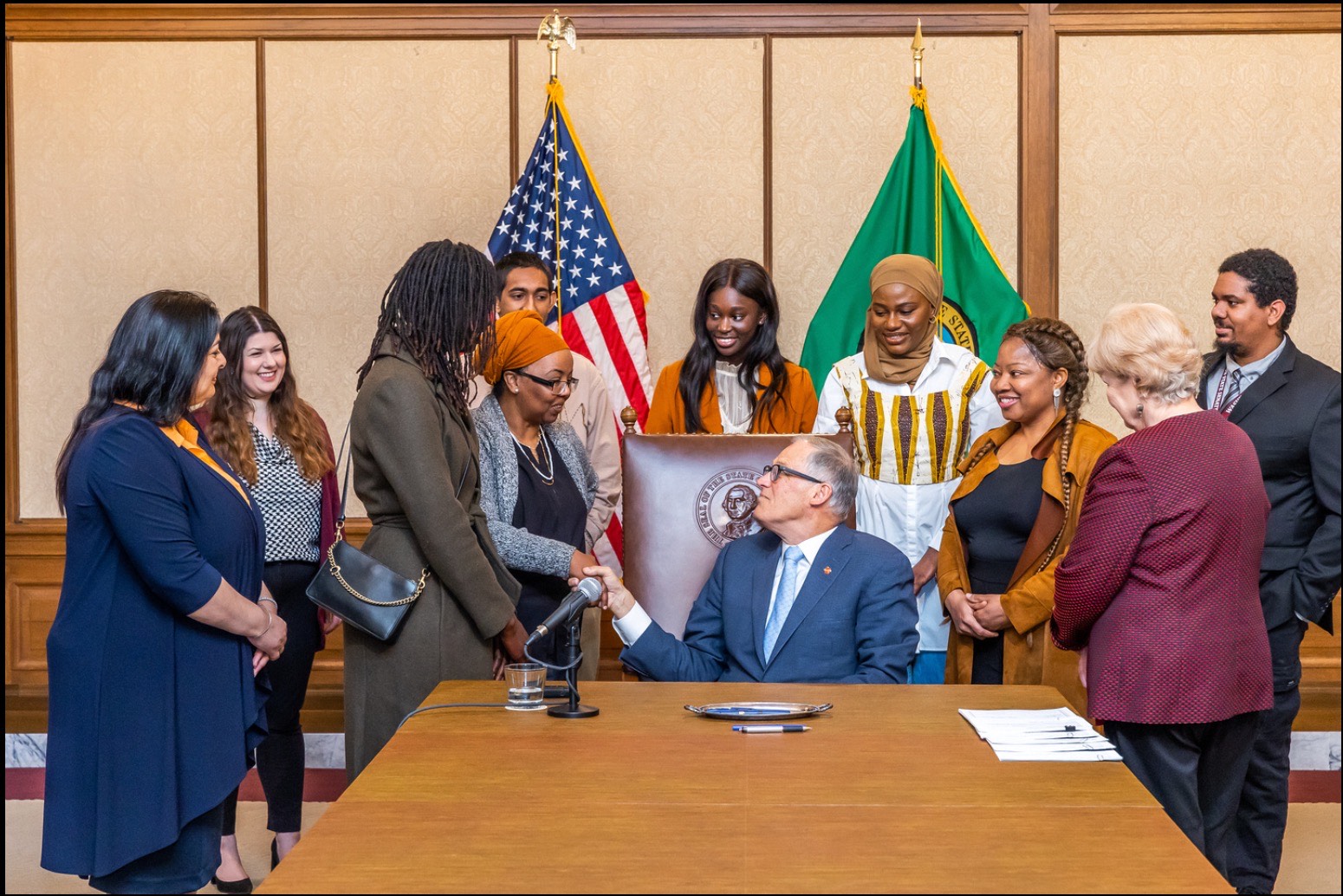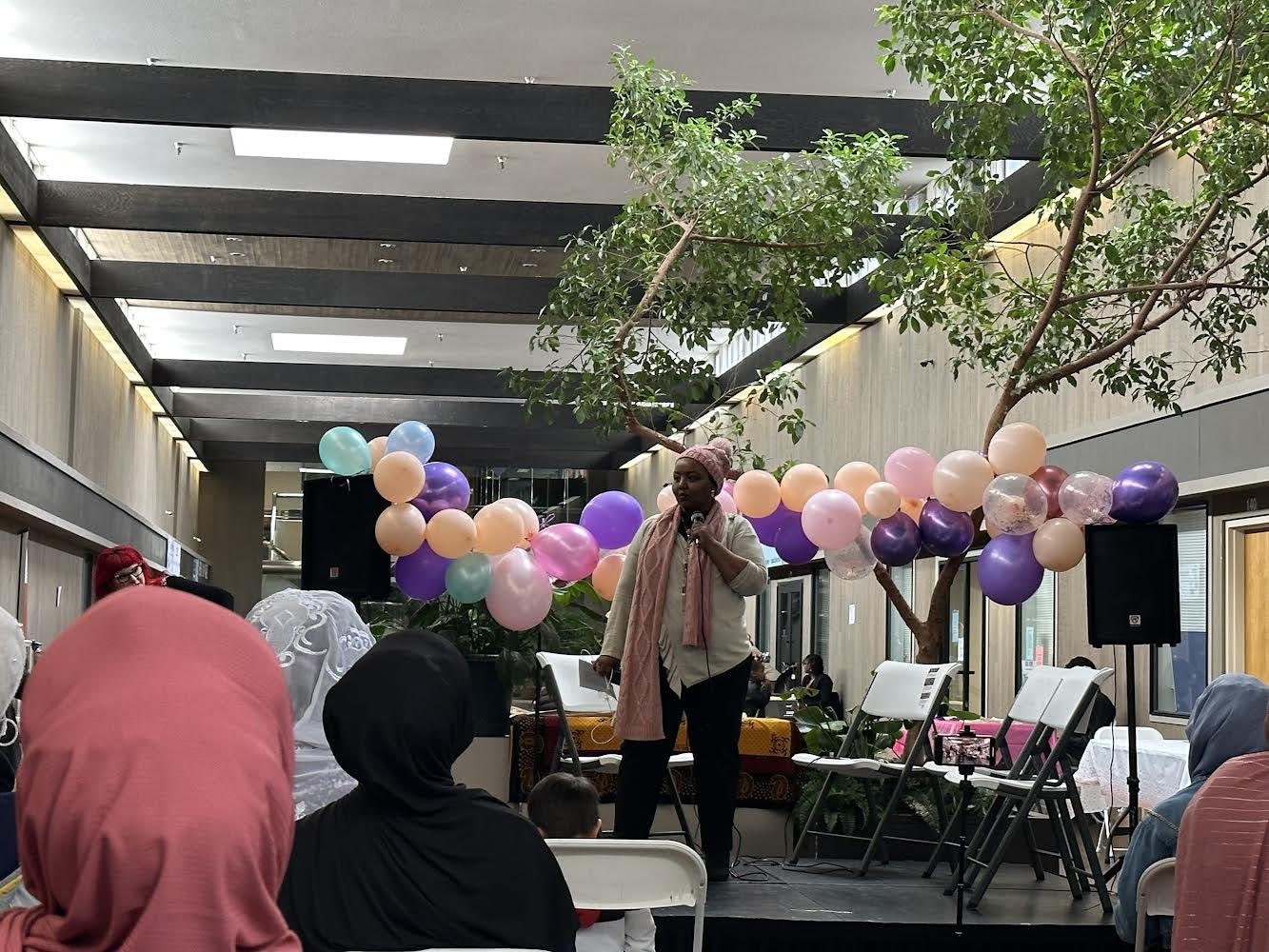Recently, policy interns at Sahiyo have been interviewing members of the Washington Coalition to End FGM/C to learn more about coalition members' important work toward policy creation on female genital cutting (FGC). Sahiyo’s policy intern, Sara Khattak, talked to coalition member Dr. Muna Osman, DNP FNP-BC, a prominent advocate in the work to end FGC in Washington state and a respected nurse. Muna has been a leading voice in the Washington movement for over 10 years.
Growing up, Dr. Muna Osman was exposed to female genital cutting (FGC) and always opposed the practice, even though she didn't fully understand it at the time. It wasn't until she was in graduate school that she decided to make FGC the focus of her studies.
"I came from a country that practices. I was in the Middle East, and it happened to me."
As she delved deeper into the issue, Dr. Osman found that doctors in the US often didn't know how to address FGC or support survivors. This motivated her to develop a curriculum to educate clinicians beyond obstetrics and gynecology (OB/GYN) professionals about the negative short- and long-term impacts of the practice.
Gaining the trust of her own community was one of Dr. Osman's biggest challenges.
"At the beginning, there was no community, because the people I'm teaching – even my professors in the graduate school – were like, who cares? It's a foreign [practice]," she recalled.
Over time, Muna found that slowly integrating conversations about FGC into her work with the community-founded safe motherhood program, Mama Aman, helped build that trust.
"I started with pregnancy. But after I graduated, we worked with Mother Africa at the community level. People know that I'm volunteering. I don't work for nobody. I don't intend to make money off them, so they start listening to me."
Dr. Osman believes that truly making progress requires bridging the generational divide within immigrant communities.
"We need to bridge the gap instead of making it bigger and give the respect they deserve, [even if] you're a kid. You have the knowledge that we didn't have. Like the parents. Most of the parents came to start a new life. We came to start a new life for our kids. We didn't come here to become evil again."
Her approach involves empowering youth to assert their bodily autonomy, while also working to educate and engage adults in a respectful way.
"We need to empower the kids and tell them, 'say no.' I don't care who you talk to, your teacher, but the teacher needs to know. It's a cultural practice."
Dr. Osman's vision for the future includes establishing a comprehensive resource center to support survivors and communities affected by FGC. This center would involve crisis hotlines, therapists trained in cultural humility, and outreach workers embedded within different ethnic communities.
"I had a vision that we will have a resource with all this money. To provide the education we need. We go to the communities and we always ask them ‘how much do you know about FGC?"
By building a holistic, community-driven approach, Dr. Osman believes we can make real progress in ending FGC in the United States. As she put it, "we cannot say that a one-person approach fits all: We want to be culturally appropriate."

(Dr. Osman shaking hands with Governor Jay Inslee of Washington state after the signing of the Bill on FGC.)
Those interested in getting involved can reach out to Dr. Osman directly or connect with the Washington Coalition and other organizations working on this critical issue.
We extend our gratitude to Dr. Muna Osman for her invaluable contributions and insights. To learn more about our ongoing work and other interviews, visit Sahiyo’s website.

